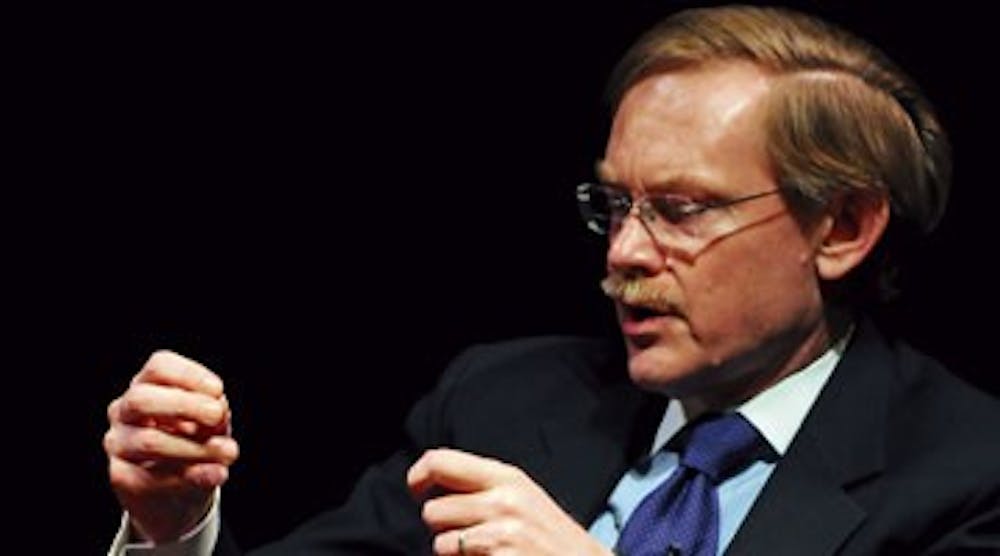
In response to the global economic downfall, World Bank President Robert Zoellick advocates a "multidisciplinary approach" to solving the current problems.
Last night, in a moderated discussion held by the Huntsman Program in International Studies and Business, Zoellick outlined specific ways in which the World Bank aims to help developing countries during the crisis.
According to him, what started out as a financial crisis turned into an economic crisis, then into an unemployment one. Finally, perhaps, it may become a "social or humanitarian crisis."
The regions most exposed to the crisis are Central and Eastern Europe, Zoellick said.
As the lead negotiator for German reunification in the late 1980s during his work with the U.S. State Department, Zoellick warned that there is a "danger of reversal" of recent financial progress for the fragile economies of Central European countries.
In the midst of the crisis, Zoellick maintained that governments should not revert from free trade. Discussing Ecuador and its protectionist efforts, Zoellick said, "I don't think that will succeed."
As part of the moderated discussion, Howard Pack, professor of Business and Public Policy, Economics and Management and Zoellick's former teacher, posed the question of whether the global crisis should necessitate a redeployment of efforts to Africa.
In fact, in an Op-Ed article in The New York Times at the end of last month, Zoellick proposed that President Barack Obama and other world leaders pledge 0.7 percent of their countries' respective stimulus packages to a "vulnerability fund" for assisting developing countries that can't afford bailouts.
He outlined three priorities for this vulnerability fund: a safety net program for the world's poor, investment in infrastructure and support for small and medium-sized businesses.
In conclusion, Zoellick remarked that despite the challenges of today's economic situation, it is a "fascinating time" to live in as experts and individuals try to find new, innovative solutions to pressing problems.
"The world will get through this," he assured the audience.
Regarding the proposed vulnerability fund, George Yin, a visiting senior from Swarthmore College studying International Politics and Economics said it was a "pretty good idea."
Abraham Chen, a College junior, remarked that Zoellick exemplified the qualities of a leader willing to "compromise between the political reality on the ground and the ideals on the other hand."
The Daily Pennsylvanian is an independent, student-run newspaper. Please consider making a donation to support the coverage that shapes the University. Your generosity ensures a future of strong journalism at Penn.
DonatePlease note All comments are eligible for publication in The Daily Pennsylvanian.




